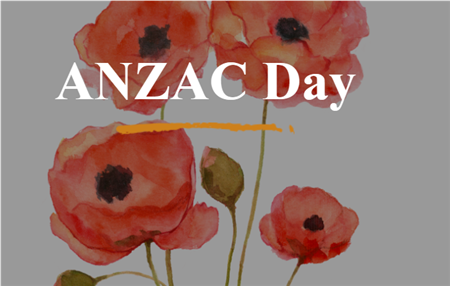
Anzac Day is a national day of remembrance in Australia and New Zealand that broadly commemorates all Australians and New Zealanders “who served and died in all wars, conflicts, and peacekeeping operations” and “the contribution and suffering of all those who have served”. Observed on 25 April each year, Anzac Day was originally devised to honour the members of the Australian and New Zealand Army Corps (ANZAC) who served in the Gallipoli campaign, their first engagement in the First World War (1914–1918). Wikipedia 2023
 |
 Ceremonies and their meanings have changed significantly since 1915. According to Dr Martin Crotty, a historian at the University of Queensland, Anzac commemorations have "suited political purposes right from 1916 when the first Anzac Day march was held in London and Australia, which were very much around trying to get more people to sign up to the war in 1916–1918.
Ceremonies and their meanings have changed significantly since 1915. According to Dr Martin Crotty, a historian at the University of Queensland, Anzac commemorations have "suited political purposes right from 1916 when the first Anzac Day march was held in London and Australia, which were very much around trying to get more people to sign up to the war in 1916–1918.There has been no shortage of heroic stories over the course of the Anzac Centenary- stories of courage and sacrifice, fortitude and endurance, mateship and resolve. But a hundred years on, there is a need for other stories as well - the stories too often marginalised in favour of nation-building narratives. World War One- a history in 100 stories remembers not just the men and women who lo st their lives during the battles of WWI, but those who returned home as well- the gassed, the crippled, the insane - all those irreparably damaged by war. Drawn from a unique collection of sources, including repatriation files, these heartbreaking and deeply personal stories reveal a broken and suffering generation - gentle men driven to violence, mothers sent insane with grief, the hopelessness of rehabilitation and the quiet, pervasive sadness of loss. They also retrieve a fragile kind of courage from the pain and devastation of a conflict that changed the world. This is an unflinching and remarkable social history.
st their lives during the battles of WWI, but those who returned home as well- the gassed, the crippled, the insane - all those irreparably damaged by war. Drawn from a unique collection of sources, including repatriation files, these heartbreaking and deeply personal stories reveal a broken and suffering generation - gentle men driven to violence, mothers sent insane with grief, the hopelessness of rehabilitation and the quiet, pervasive sadness of loss. They also retrieve a fragile kind of courage from the pain and devastation of a conflict that changed the world. This is an unflinching and remarkable social history.
 st their lives during the battles of WWI, but those who returned home as well- the gassed, the crippled, the insane - all those irreparably damaged by war. Drawn from a unique collection of sources, including repatriation files, these heartbreaking and deeply personal stories reveal a broken and suffering generation - gentle men driven to violence, mothers sent insane with grief, the hopelessness of rehabilitation and the quiet, pervasive sadness of loss. They also retrieve a fragile kind of courage from the pain and devastation of a conflict that changed the world. This is an unflinching and remarkable social history.
st their lives during the battles of WWI, but those who returned home as well- the gassed, the crippled, the insane - all those irreparably damaged by war. Drawn from a unique collection of sources, including repatriation files, these heartbreaking and deeply personal stories reveal a broken and suffering generation - gentle men driven to violence, mothers sent insane with grief, the hopelessness of rehabilitation and the quiet, pervasive sadness of loss. They also retrieve a fragile kind of courage from the pain and devastation of a conflict that changed the world. This is an unflinching and remarkable social history.